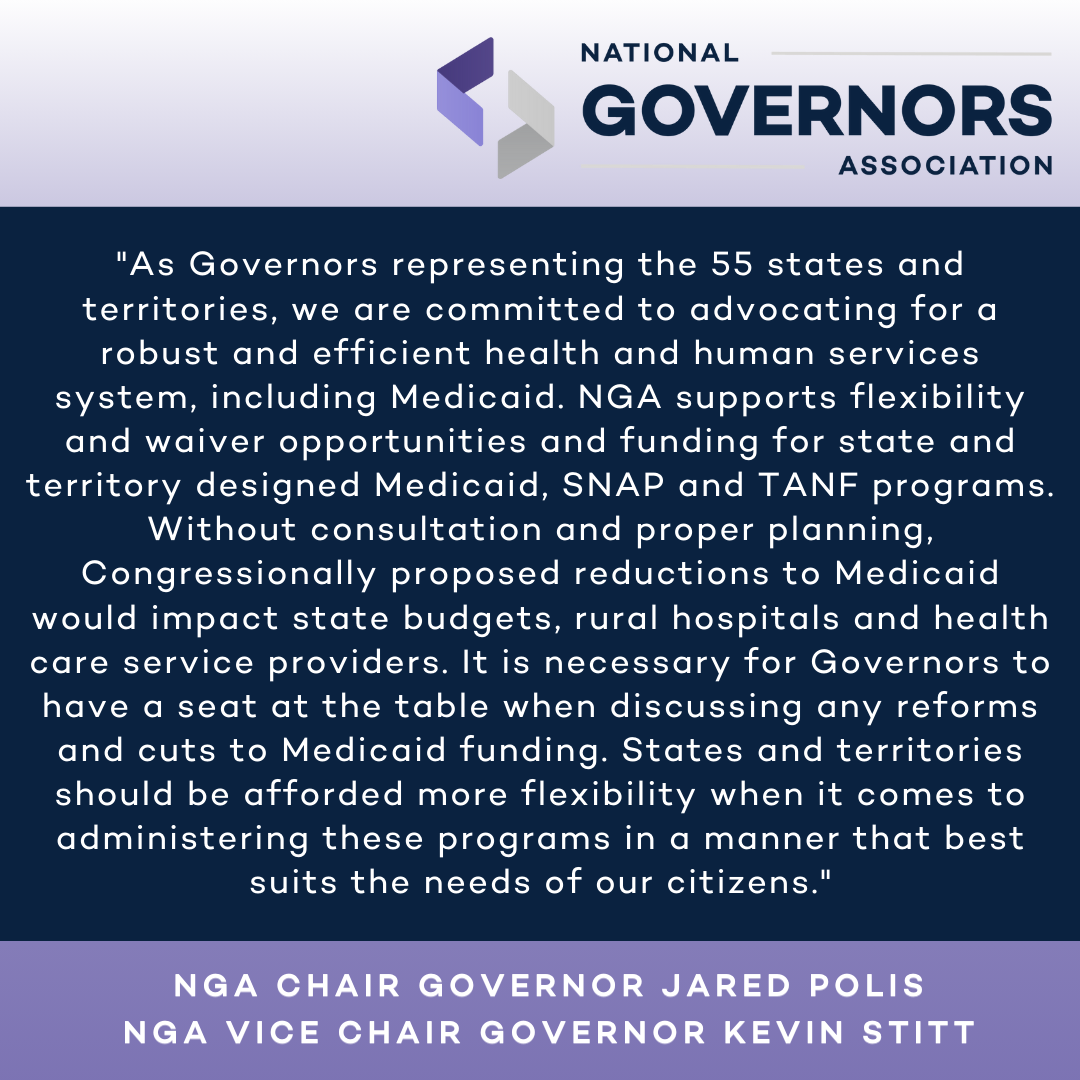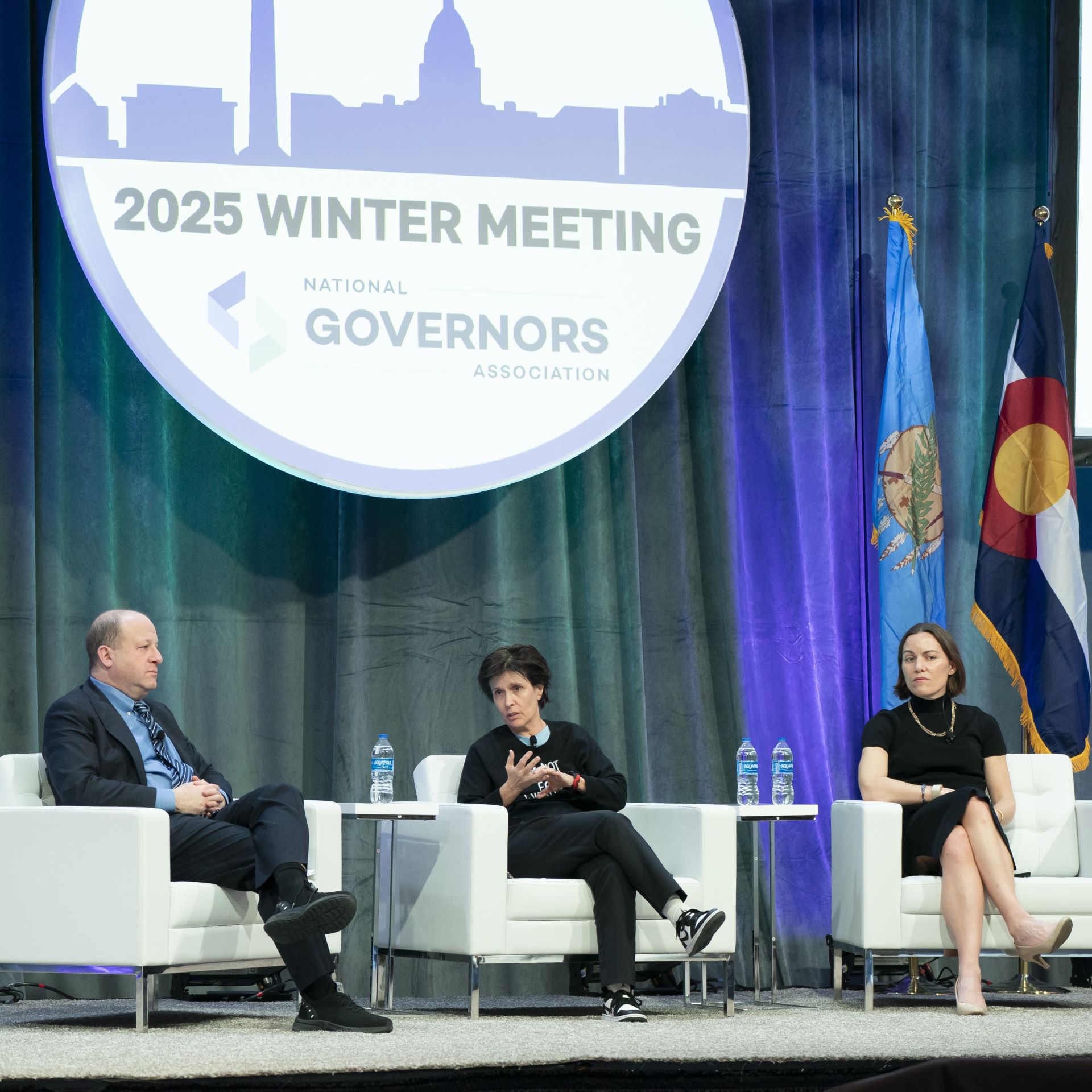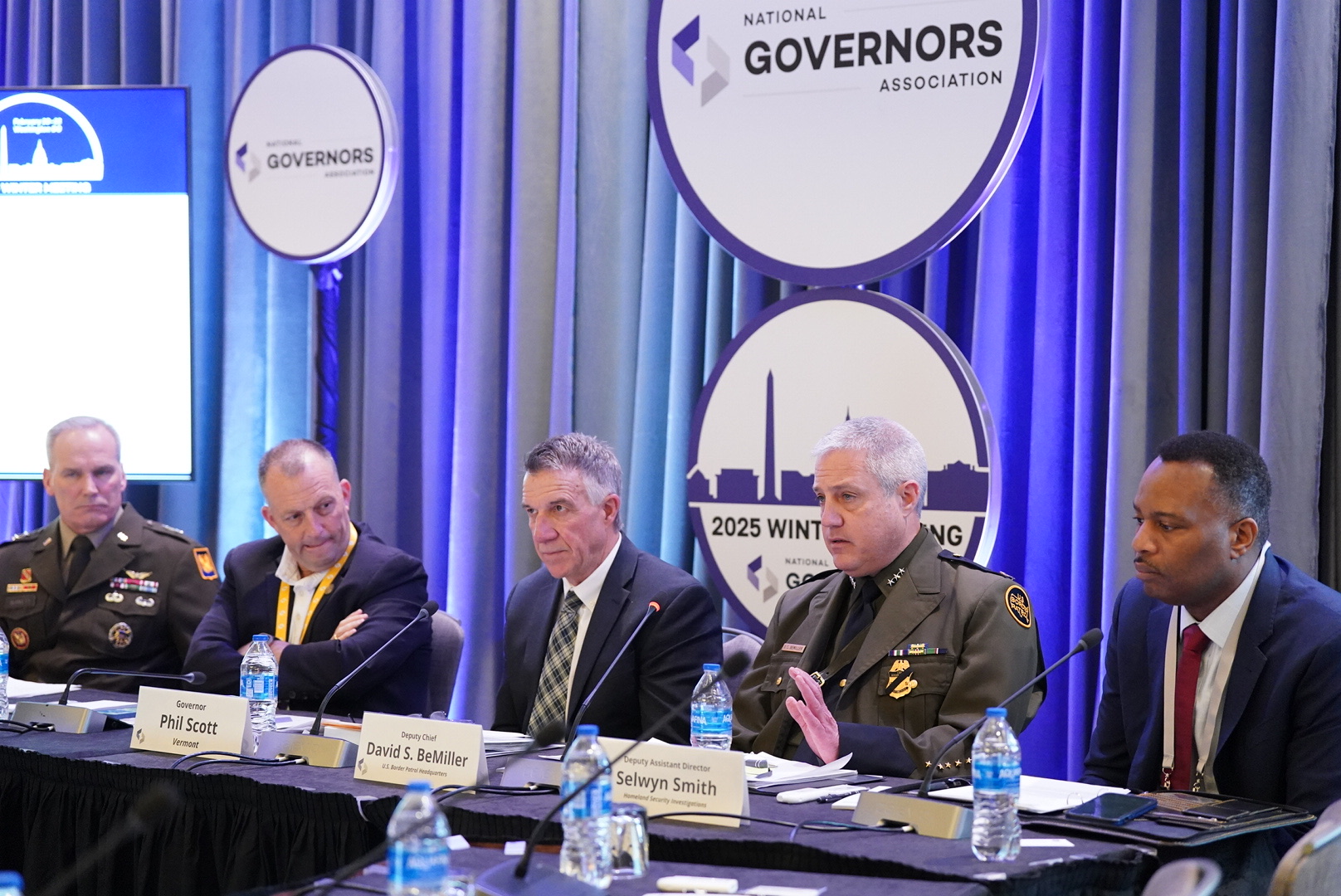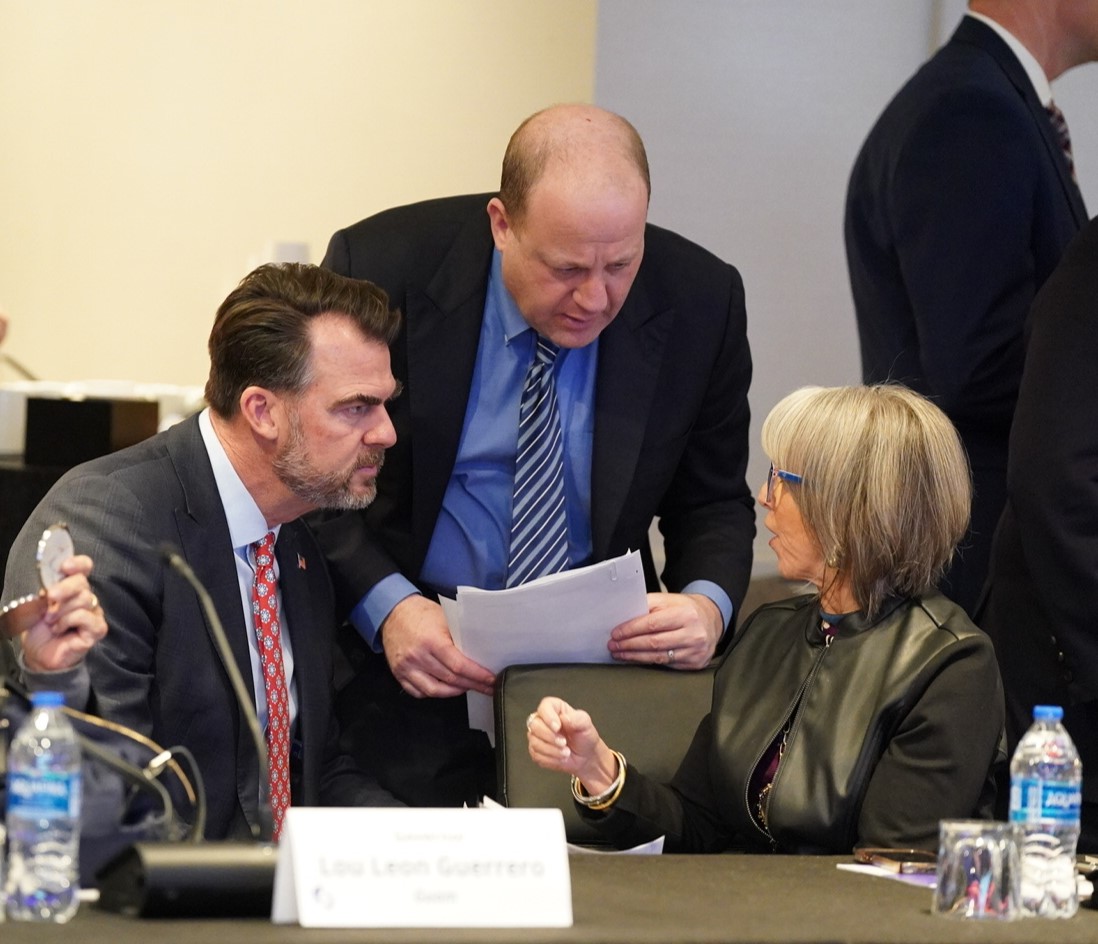Governors, state education leaders and national experts met in Bentonville, Arkansas to discuss the NGA Chairman’s Initiative on K-12 computer science education.
By Catherine Van Ness
On March 17, 2022, NGA Chairman Arkansas Governor Asa Hutchinson hosted a convening in Bentonville, Arkansas to advance his NGA Chairman’s Initiative on K-12 computer science education. Participants in the meeting included Governors, state education leaders, national experts, teachers and students from eight different states.
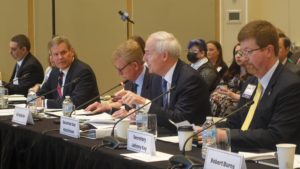
Governor Hutchinson opened the meeting by discussing the benefits of computer science education from developing foundational skills that help students succeed in all subjects, such as critical thinking and problem solving, to a six times higher return on investment from college tuition for a degree in engineering, computer science or information technology. Tennessee Governor Bill Lee touted the success of his Future Workforce Initiative which began to intentionally advance STEM education, including computer science education, in Tennessee in 2019. Governor Lee also mentioned his support for new legislation to expand computer science education in Tennessee.
The first panel of the morning was moderated by Arkansas Secretary of Education Johnny Key and included state education leaders from five states. Secretary Key began the session by thanking Governor Hutchinson for his leadership in computer science education for the past seven years, including the recent passage of legislation requiring computer science credit for high school graduation. Secretary Key also stated that every generation must reexamine what students should learn during their public education, and now is the time to add computer science education to bolster digital literacy for the next generation’s success.
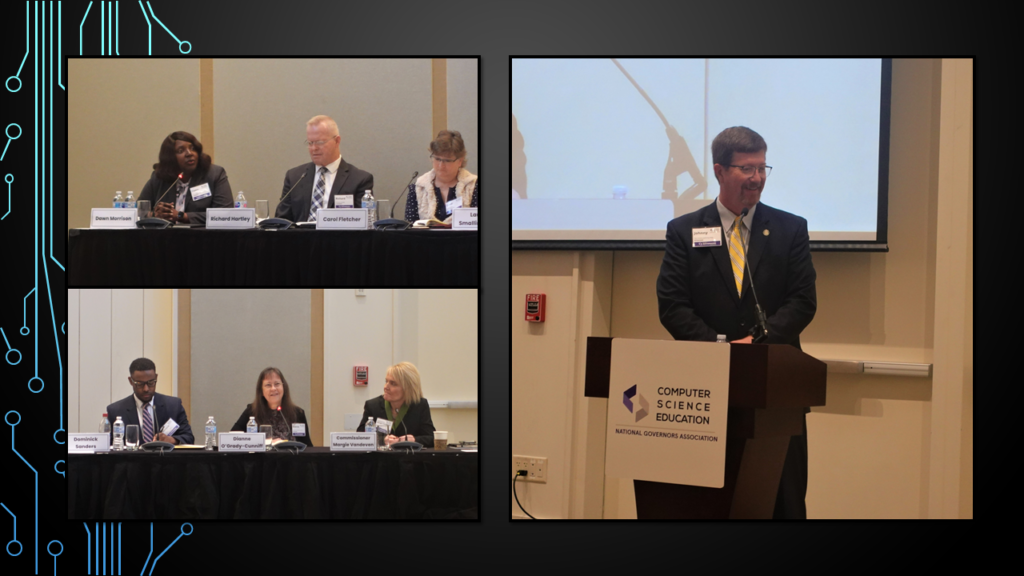
As the panelists spoke about their states’ journeys in expanding computer science education, Missouri Commissioner of Education Margie Vandeven applauded Governor Mike Parson’s efforts to close the digital divide, which is especially important in exposing students in rural areas to these opportunities. Alabama Computer Science State Administrator Dawn Morrison emphasized the importance of dedicated state funding for their initiative, which has been used to expand professional learning for teachers to be better prepared to provide instruction on computer science. Louisiana Governor John Bel Edwards’ Senior Policy Advisor Richard Hartley detailed the state’s Fast Forward program that connects high school students with postsecondary education and career opportunities. Dianne O’Grady-Cunniff, Director of the Maryland Center for Computing Education, highlighted the inclusion of computational thinking as a quality indicator on middle school ESSA report cards as a strategy to prepare younger students with critical foundational skills. South Carolina Computer Science State Supervisor Dominick Sanders explained that adding computer science as a graduation requirement helped the state to reach more representative participation by gender and race in their high school classes.
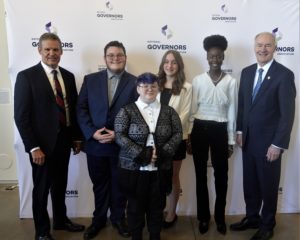
The second panel of the day featured four students who had taken computer science classes during their middle and high school years. Hailing from Arkansas, Missouri, Oklahoma and Tennessee, each student described different projects they had worked on and different future aspirations for using their skills learned during computer science classes. Answering questions from moderator Romy Drucker, K-12 Education Program Director for the Walton Family Foundation, an eighth-grade student said that she had become more confident in public speaking after completing a class presentation and a high school senior described his success in computer science projects as only being limited by his imagination.
The meeting concluded with a roundtable discussion ranging from strategies to engage private industry and connect students with potential career paths to approaches for growing teacher capacity and engaging a more diverse group of students in computer science classes. The national experts in the room discussed strategies to not only increase the diversity of students in computer science classes but also the teachers with the professional learning to lead those classes. Such strategies included making courses more experiential, offering scholarships and requiring computational thinking in preservice teacher preparation. Representatives from the private sector discussed methods for supporting teachers with industry expertise, offering career exposure to students and building public and legislative support for computer science education.
The National Governors Association looks forward to the next regional Chairman’s Initiative meeting in Boston, Massachusetts where Governors and other stakeholders will continue to discuss the importance of expanding K-12 computer science education and the variety of career pathways available to students with computing skills and strong digital literacy.



